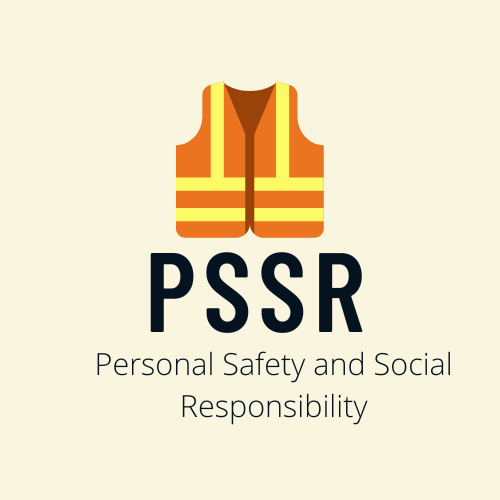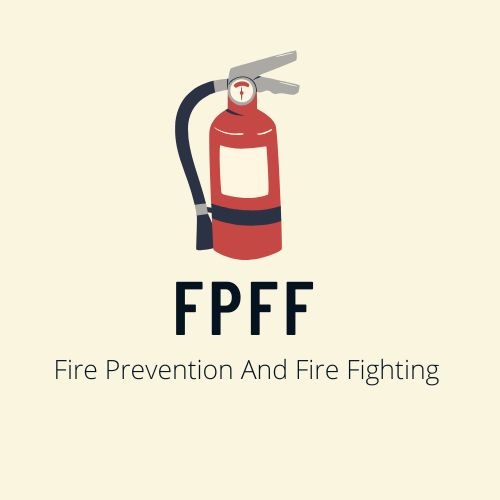FPFF exit exam questions and answer quiz contain questions Answer
If you find any questions incorrect, please let us know by Clicking here.
1. CO2 portable extinguisher fitted in
accommodation should have ______ of liquid
a) 2.5kg
b) 3.5 kg
c) 4.5 kg
d) 5.5 kg
2. All portable. Semi-portable and fixed fire extinguishing units on board ship must be tested and inspected at least once every
a) six weeks
b) five year
c) twelve months
d) two years
3. During a fire, the means of
communication
a) Messengers
b) Telephones
c) Walkie-Talkie
d) All of the above
4. How do you direct a fire nozzle under
full water pressure
a) Blowing
b) Two hoses for each vertical fire zone
c) One hose for every second fire hydrant
d) one hose for each 30-meter length
of ship plus one spare hose for engine
5. Who has the
authority to pull the fire alarm after discovering a fire on the worksite
a) Only Mater can activate the fire alarm
b) Anyone who has seen a fire can
activate the fire alarm
c) only the fire safety officer activates the fire alarm
d) only the crew can activate the fire alarm
6. What is the maintenance schedule for a
sprinkler system onboard
a) Monthly
b) Quarterly
c) Weekly & yearly
d) Half yearly
7. What action should be taken immediately
after a fire has been extinguished
a) They are liable to spontaneous combustion
b) They are not a hazard
c) They are not hazarded unless ignited
d) They generate their own oxygen when ignited and are therefore difficult to extinguish
8. Which ship shall
be provided with international shore connection for supply of water as extinguishing media
a) Tankers
b) All ships of 500 GRT and upward
c) Passenger ships carrying more than 36 passengers
d) Passenger ships of 100 GRT and upward
9. Fire detector principle of operations
could be based on
a) Bimetallic strip
b) Fusible links
c) Quartzite bulb
d) All the above
10. You should always
check closed doors for heat before opening them
a) True
b) False
11. Fire of carbonaceous substances is
known as
a) Class B Fire
b) Class Afire
c) Class C fire
d) Class D fire
12. Fire blankets are used for
a) Smothering of fire
b) Cooling of fire
c) Inhibition of fire
d) Starvation of fire
13. Designated exits must always be unlocked from both sides
a) True
b) False
14. The lowest temperature at which the
heat from the combustion of a burning vapor is capable of producing sufficient
vapor to sustain the reaction and to enable combustion to continue is called
a) Flashpoint
b) Self-ignition temperature
c) Fire point
d) None of the above
15. What fixed firefighting medium do we
normally use in the engine room, pump room and other spaces?
a) 68 - 79
b) 56 - 67
c) 48 - 55
d) 80 – 90
16. Structural fire protection refers to
the passive measures taken to
a) Provide a vessel with a sprinkler system
b) Provide a vessel with firefighting equipment
c) Limit the risk and spread of fire
d) Limit the size of the engine room
17. What quantity of
reserve fuel is to be available for diesel driven fire pumps outside the main machinery space
a) 20 liters
b) 40 liters
c) sufficient amount for six hours operation at full capacity
d) Sufficient amount for fifteen hours
operation at full capacity
18. You are carrying out a search in a
smoke-filled compartment wearing BA. At what stage should you start to make
your way out of the compartment?
a) Regularly check your pressure gauge and note how much air you used to reach your work area. Start to return when you have this amount left plus a reasonable reserve
b) Wait for the appropriate signal on your safety line as the personnel outside will be keeping track of the time you have spent inside
c) 15 minutes after starting to use the set as this leaves you with five minutes air left
d) wait until the BA set warning whistle sounds
19. Watertight sliding steel doors used below the water line must be able to close in 45 seconds or less when the ship is in an upright condition
a) False
b) True
20. What is the requirement for escape route opening
a) Must be capable of opening from the
direction for which escape is required
b) Must be capable of opening in both directions
c) Must be capable of opening from outside to inside
21. Extinguish the fire by
a) Cooling the material
b) Starving the fire
c) Smothering the fire
d) All of the above
22. Fire can be caused onboard a vessel
by
a) A high DC power supply
b) Low batteries
c) A low AC power supply
d) Faulty electrical leads
23. If you are the first person to
discover a fire, what should you do?
a) Leave the building immediately
b) Head to your locker and get your personal items
c) Pick up a fire extinguisher and tackle the fire
d) Activate the fire alarm
24. Class B fire extinguishers are
designed to be used on combustible metals
a) True
b) False
25. Portable fire extinguishers are
available only C02 and foam
a) True
b) False
26. For fighting fire on the deck of a
tanker system used is
a) Low expansion foam
b) High expansion foam
c) DCP
d) CO2
27. Class B fires are those fires that
occur involving paper and wood
a) True
b) False
28. A concentration of only% will induce
rapid unconsciousness
a) 1%
b) 10%
c) 70%
d) 0.33%
29. Fire patrol should use their senses touch,
smell and sight to identify fire
a) True
b) False
30. Violent flames and heavy black smoke is
typical of which sort of fire
a) Woodfire
b) Paper fire
c) Fuel oil fire
d) Electrical fire





